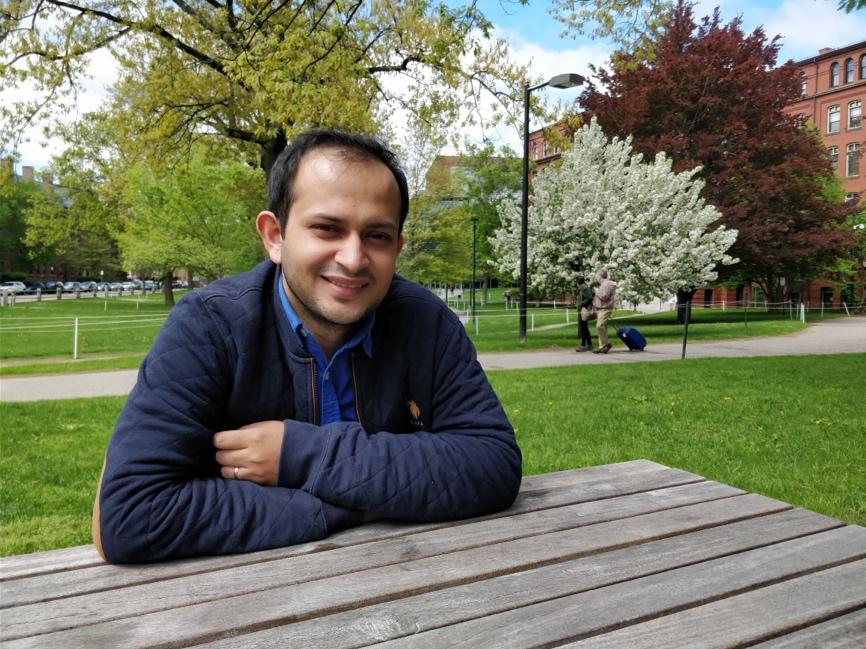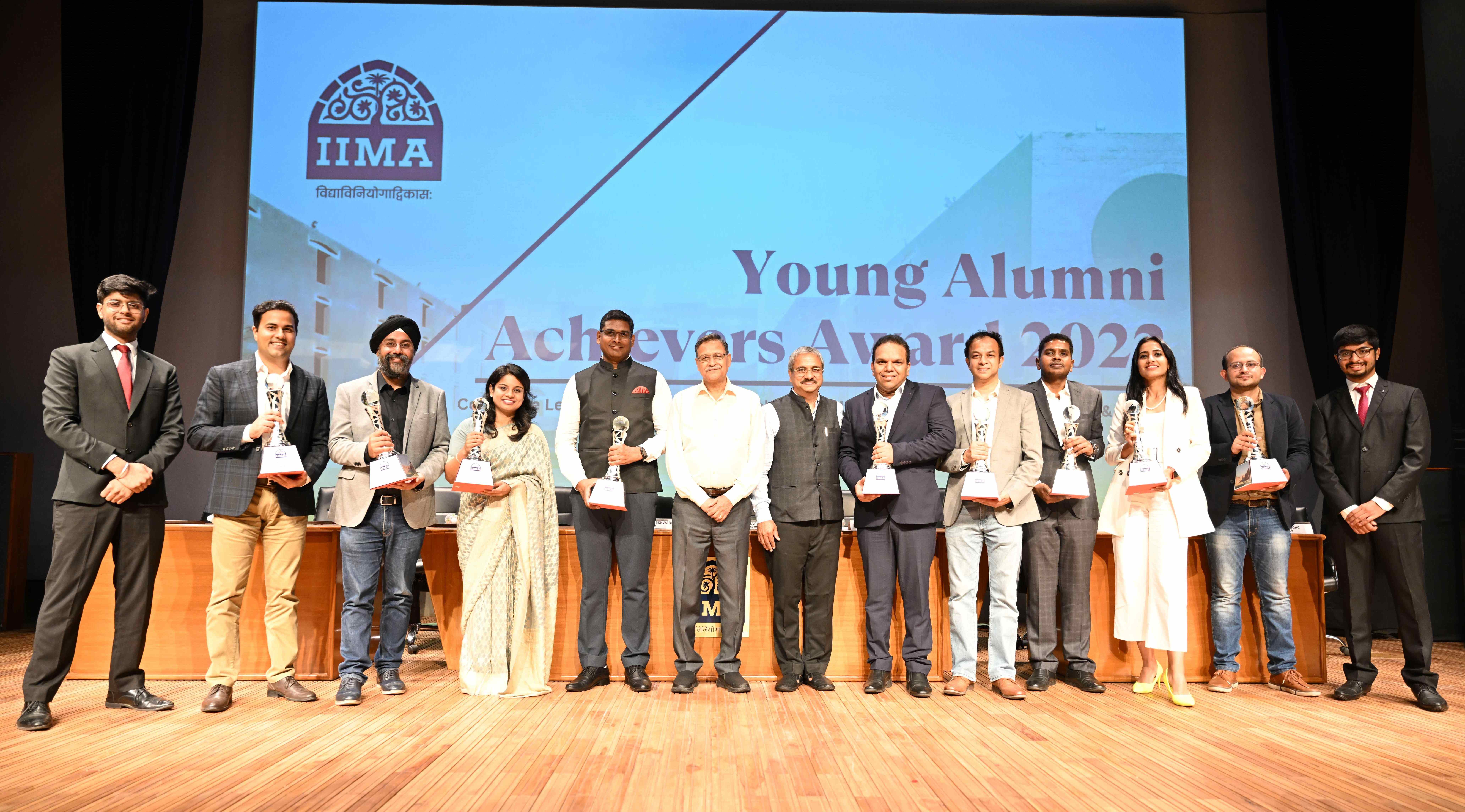
Arts/Entertainment
Tanuj Solanki
(PGP 2009)
Sahitya Akademi Yuva Puraskar Winner
Box:
- Tanuj Solanki is an award-winning fiction writer with four book-length works published by major Indian publishers, with some of the stories optioned for screen and stage adaptation.
- Tanuj received the Sahitya Akademi Yuva Puraskar (the highest award in India for an outstanding work of literature by a writer under 35) for his short-story collection, Diwali in Muzaffarnagar.
- His work, Neon Noon, was shortlisted for the Tata Lit Live First Book Award 2016.
- Tanuj’s work was recently included in Aleph Book Company’s A Case of Indian Marvels, an anthology of the works of the best Indian writers under the age of 40.
- The Machine is Learning was longlisted for the JCB Prize for Literature (the richest prize for novels in India) in 2020.
- His prominent works include Manjhi’s Mayhem, The Machine is Learning, Diwali in Muzaffarnagar, Neon Noon, A Case of Indian Marvels, and Out of Print, Ten Years: An Anthology of Series
What does the award mean to you?
First of all, it’s a big thing that one is considered young. Secondly, this is IIM Ahmedabad. When they call you back a decade or more after graduating, it’s quite a feeling. I am humbled and honoured.
How did you end up being a writer after graduating from IIMA?
I come from a small town Muzaffarnagar, Uttar Pradesh and the path for if you do well in school is pretty much clear. You come from a certain background, your father’s in a government job etc. So it is pretty obvious that you will take the sciences, physics, chemistry, maths, and then engineering and then if you have it in you to become a good engineer, then great. If not, then what is the next best thing you realise about the biggest competitive examination in India–either the IAS exam or CAT exam? So that path was very clear to me ever since my school days.
But even in school I used to love languages and I used to finish the prose and poetry books as soon as we received them. So there was this awareness that I am someone who likes languages the most. Whenever I had free time. I wouldn’t be solving puzzles; I would read a short story or something like that. And sometimes during my engineering in Jaipur I was in NIIT I started blogging– some poetry, some short essays. And even then the idea that I would become a writer did not exist but I enjoyed that.
In IIM Ahmedabad, the first year just vanishes in academics. But during the second year, you get a lot of free time and you have electives to choose and if you allow yourself to be a bit distant from the competition, then you can enjoy your second year. So I did that and I found a lot of time to write. And I used to post those poems on our student board, it was called the Debabble. Six or seven people would read them and I thought, this looks like the thing that I’ll always do whenever I have the time to do what I want. But the awareness that I will become a writer, or I must become a writer, didn’t exist in my IIMA years. I think it was one or two years after that, that I gave it a serious shot. I wanted to see my short story published in a good place, that was the limit of ambition.
Your short story collection Diwali in Muzaffarnagar won the Sahitya Akademi Yuva Puraskar in 2019. What was the inspiration behind those short stories? And could you just share a little bit about the short story collection itself?
Diwali in Muzaffarnagar was my second book. By then, I was a bit of a writer, one book had been out. The first book was not a very personal book in the sense that it didn’t link back to where I come from, or what my experience has been. I wanted the second one to be personal. I come from Muzaffarnagar and I imagined seven or eight people like me who had left the city after studies. I imagined that they were all classmates in a school in Muzaffarnagar. They have studied hard and they have rocketed out of Muzaffarnagar, some are in the US, and some are in Bombay, but their families are still there so they have to return. This, I realised, would be very fertile ground for cooking up stories, this is what we writers call ‘conflict’. And it turned out that it was a pretty new thing and it hadn’t really been captured a lot in Indian writing in English and then it won this award. So it simplified the path for me as a writer in that it ensured that if I wrote another book, the publisher would read it. I think Diwali in Muzaffarnagar was a turning point in my journey as a writer.
What is your process for developing characters?
In the US, you learn writing, there is a course called Masters of Fine Arts in Creative Writing. In India, there is nothing like that. So as a writer, you develop your templates. You have your theory of how characters are built which may not be like if the professor of MFA would teach. So if I have to make a person believable I ask myself– Who is the person? Their physical attributes? Where do they work and where do they live? Where do they work? Who do they work with? How do you travel from point A to point B, living face to face and back? Home? How do they relate to the people in their lives? So that is what you break down into these things? If you just spend time populating that list, suddenly you know who the person is.
How do you manage your day job with your writing?
I must say that if you just become a writer, it will not make enough money for you. So my advice to everyone is not to become only a writer, because sadly, the economy doesn’t allow that. There are very, very few people who make a living, just writing for newspapers or magazines. Therefore, I have a job. Because I have to be a writer, I have to do a job that gives me time. This is not to say that it’s not a tough job. And whether you want to or not if you do well, they promote you and then you find yourself in a position where you’re responsible for other people’s careers. So yeah, I’ve been managing. I think I’ve been pushing myself too hard, at least for the last six, or seven years in both spheres. But something will have to give because I’m reaching a point where it’s not sustainable. But let’s see what happens. I don’t know. The best would be if IIMA starts a creative writing course and I teach it.
Piece of advice for anybody who’s thinking of doing what you’re doing?
If you are thinking of writing, it will take time for you to be good. You want to become a writer because you suspect you have talent. But talent doesn’t get you anywhere without consistency. It is like a sport. You need to show up every day for training. Writing is pretty much like that. It is a life decision. Because once you decide to be a writer, there’s not a moment in your life when you are not writing. It is tough, almost like a spiritual call. So do it only if you feel very, very, very inclined to do it, and you can not do it.




Sorry, the comment form is closed at this time.